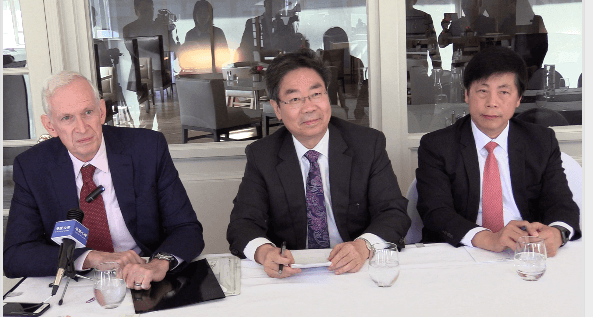News Analysis
UNION CITY, Calif.—Taiwanese trade official Chuang Suo-Hang called for a new trade agreement between the United States and Taiwan in a speech at a banquet on March 30.

UNION CITY, Calif.—Taiwanese trade official Chuang Suo-Hang called for a new trade agreement between the United States and Taiwan in a speech at a banquet on March 30.